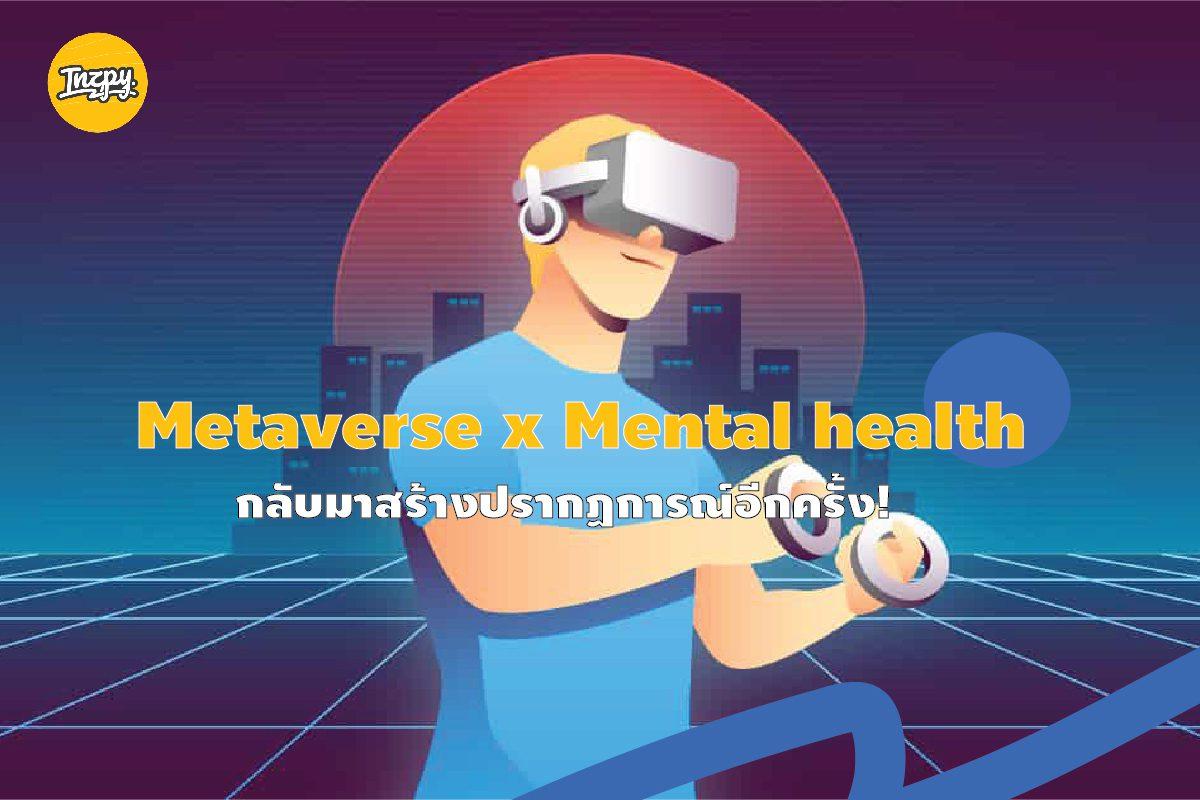The coming new internet of things - The Metaverse
The coming new internet of things - The Metaverse
The world is changing and it is a very big change, this change will leave many behind.
To coin this properly, I will call this change, ''the coming new internet of things (the metaverse), where the internet as we know it today will not just be typing of keys on a keyboard but will be an internet where we are actually involved metaphysically.
Facebook in her foresight to take a foothold in this land of infinite possibilities changed her name to Meta. Why would a big company like Facebook, with a name so widely known to even the oldest of people and the youngest, why will Facebook change her name? well, that should tell you the magnitude of the metaverse or the new coming internet of thing. In this metaverse, people are the key, a land without inhabitants is no use and so facebook sees herself in an advantageous position therefore the big move.

To carry on with this article without first knowing the origin of the name metaverse or the meaning of the word metaverse will be like living in a house without a house or walking without the means to walk, very confusing, yes exactly. What is Metaverse The metaverse has been a hot topic of conversation recently, with Facebook and Microsoft both staking claims. But what is the metaverse? And when will it get here? Author Neal Stephenson is credited with coining the term "metaverse" in his 1992 science fiction novel "Snow Crash," in which he envisioned lifelike avatars who met in realistic 3D buildings and other virtual reality environments.

Since then, various developments have made mileposts on the way toward a real metaverse, an online virtual world that incorporates augmented reality, virtual reality, 3D holographic avatars, video and other means of communication. As the metaverse expands, it will offer a hyper-real alternative world for you to coexist in. Inklings of the metaverse already exist in online game universes such as Fortnite, Minecraft and Roblox. And the companies behind those games have ambitions to be part of the evolution of the metaverse.
Credit: USPost How do I get ahead of the change, be part of the change or control the change? Every change comes with it a bit of a nightmare, a nightmare because of the unknown, not knowing a thing put the one not knowing into darkness, the darkness of the unknown, for this reason, the saying ''knowledge is power'', knowledge actually gives you power but what is power without light, your power means nothing when you don't have light and so knowledge is more of light or enlightenment that actually power, and so let me say this ''knowledge is light'' and so first and foremost we need education, true knowledge of what's really going on, but the thing is, we don't only need the knowledge but being able to apply the knowledge is what we need.
Blockchain & The Metaverse To remind us again, the term "metaverse" was first used in Neal Stephenson's iconic cyberpunk novel Snow Crash, published in 1992. But, what is the Metaverse? The Metaverse (always capitalized in Stephenson's fiction) is described as a shared "imaginary realm" that is "made available to the public across the worldwide fibre-optics network" and projected onto virtual reality goggles in the novel. Therefore, the phrase can apply to digital settings that have been enhanced with virtual reality (VR) or augmented reality (AR). Meta in the term means “beyond” and verse refers to the “universe.” Moreover, some people also use the term metaverse to refer to virtual worlds in which players can roam around and interact with other players; for instance, a world where developers can build buildings, parks, signs and things that do not exist in reality. It includes vast hovering overhead light shows and notable neighbourhoods (where the rules of three-dimensional spacetime are ignored, and free-combat zones where people can go hunting and kill each other).
The COVID-19 epidemic ignited the interest in the metaverse. As more individuals work and go to school online, there has been a rise in the desire for techniques to make online contact more lifelike. In this article, we will discuss metaverse coins, tokens and wallets as well as blockchain metaverse startups, crypto metaverse projects and how the metaverse works. What are the core attributes of a metaverse? The Metaverse is frequently depicted in this context as a kind of digital "jacked-in" internet — a manifestation of actual reality but one grounded in a virtual (often theme park-like) world. So, the core attributes of the Metaverse can be identified as: Be synchronous and live: Synchronous and live: While pre-scheduled and self-contained events will occur, the Metaverse will be a living experience that exists continuously for everyone and in real-time, just as it does in "real life." Persistent: It never "resets," "pauses," or "ends," — it just keeps going endlessly. Available individually and concurrently: Everyone can be a part of the Metaverse and take part in a specific event/place/activity simultaneously and with their agency in the Metaverse. A fully functioning economy: Individuals and businesses should be able to create, own, invest in, sell and be compensated for a vast array of efforts that produce value that others recognize.
An experience: It should span both digital and physical worlds, private and public networks/experiences, as well as open and closed platforms. A wide range of contributors: It should be filled by content and experiences developed and operated by many contributors, some of whom are self-employed, while others are informally organized or commercially-oriented businesses. Offer unprecedented interoperability: It should offer remarkable data, digital items/assets, content, and other interoperability between each of the experiences—a car developed for Rocket League (or even Porsche's website) could be transported over to work in Roblox. Today's digital world operates as if it were a shopping mall, with each store having its own money, unique ID cards, proprietary units of measurement for items like shoes or calories, and various dress rules, among other things. What is not the Metaverse? While the comparisons above are likely to be part of the Metaverse, they aren't the Metaverse, themselves. For decades, virtual worlds and games with artificial intelligence (AI)-driven characters and those populated with "actual" humans in real-time have existed. Therefore, “a virtual world” isn't a "meta" universe but a fictitious and synthetic one created for a particular goal (a game).
Similarly, digital content experiences like Second Life are often referred to as "proto-Metaverses.” But various facets of virtual worlds, like the representation of humans by digital avatars, lack of game-like goals or skill systems and virtual hangouts persist and even though they offer virtually simultaneous content updates, they are insufficient for the Metaverse. Therefore, “a virtual space” isn't a metaverse. Virtual reality (VR) is a method of experiencing a virtual world or area. A sense of presence in a digital world isn't enough to constitute a metaverse. Furthermore, while a metaverse may have some game-like aims, feature games, and use gamification, it is not a game in and of itself, nor is it focused on specific goals. Hence, it is neither “virtual reality” nor “a game.”
A metaverse is not centrally programmed like Disneyland; therefore, it is not a “virtual theme park.” Similarly, a metaverse is not a “new app store”; instead, it is fundamentally different from contemporary internet/mobile paradigms, design and priorities. How does the Metaverse work? The metaverse can be divided into two sorts of platforms in general. The first involves leveraging nonfungible tokens (NFTs) and cryptocurrencies to create blockchain-based metaverse startups. People can buy virtual land and create their own settings on Decentraland and The Sandbox platforms. The second group uses the metaverse to describe virtual worlds in general, where people might meet for business or enjoyment. In July, Facebook Inc. announced the formation of a metaverse product team. People who buy or trade virtual assets on blockchain-based platforms must use cryptocurrencies, despite many metaverse services offering free accounts. Several blockchain-based platforms, such as Decentraland's MANA and The Sandbox's SAND, require Ethereum-based crypto tokens to purchase and sell virtual assets.

Users can trade NFT (Non-fungible token) artworks or charge for admission to a virtual show or concert in Decentraland. They can also make money by trading land, which has seen a significant increase in value in recent years. Users can earn money on Roblox by charging other users for access to their games. What can you do in the Metaverse? One can take a virtual trip, buy digital clothing, go to a virtual concert in the crypto metaverse projects. Amid the COVID-19 pandemic, the Metaverse could be a game-changer for the work from the home shift. Horizon Workrooms, a free open beta from Facebook, is now available for download on Oculus Quest 2 in regions where Quest 2 is supported. Workrooms is a virtual meeting space that allows you and your coworkers to collaborate more effectively from any location. You can join a conference in VR as an avatar or make a video call from your laptop or PC to the virtual room.
You can collaborate on ideas using a sizable virtual whiteboard, bring your computer and keyboard into VR to collaborate with others, or have expressive discussions that feel more like you're in person. However, tech firms must yet figure out how to connect their various web channels. To make it work, competing technological platforms will need to agree on a set of standards to avoid switching between the Facebook metaverse, Microsoft metaverse, or others. Is crypto the key to the Metaverse? The Metaverse's goal is to provide people with an augmented reality experience that, in many ways, may surpass physical reality in terms of experiences and opportunities. Let's take a look at why the metaverse needs encryption to function correctly. The unhackability and immutability of blockchain are critical properties for any virtual reality technology to gain broad adoption. Hacks and data breaches are common, but if people are supposed to operate in an entirely online and virtual environment, the underlying platform on which they will be operating must be secure. Not only does blockchain allow for fast confirmation of information, but it also allows for cryptographically secure and protected transactions. Blockchain and crypto assets are a fundamental and integral aspect of how virtual reality will be deployed. Building on the previous point, the Metaverse will want and require transactions to be completed on demand, which blockchain and crypto assets can help to enable.
There will need to be transactions for an actual virtual reality environment to work and perform as stated. These transactions must be secure and virtually fast. Individuals in this ecosystem, in particular, will need to be able to: a) transact and engage as readily as if they were in person and b) have trust that these transactions will be completed. Individuals and institutions can conduct transactions in a virtual, traceable and real-time manner via crypto transactions, which are feasible and proven methods. However, even without the continued use of blockchain and crypto-asset technology, the trend toward virtual and online payments has been growing. Transacting and engaging in commerce in an online environment has become a mainstream evolution that has become even more commonplace with the adoption of crypto payments by Visa, Mastercard and PayPal. Crypto-enabled payments became even more prevalent in a virtual ecosystem, such as the metaverse, and it makes sense that such payments will move to the forefront in the future. The Metaverse is still a developing and rapidly expanding field.
Still, the bottom line is that to support and actualize a fully functional metaverse, blockchain and crypto assets will need to play a significant part in its future implementation. Are there any concerns with the Metaverse? A few other concepts could be fundamental to the Metaverse, although they aren't universally accepted. One of these concerns is whether participants will have a single digital identity (or "avatar") that they will use throughout all of their encounters. This would be useful, but it's doubtful because each of the "Metaverse era's" leaders will still want their identification systems. Today, for example, there are a few dominant account systems – but none covers the entire web, and they frequently stack atop one another with limited data sharing/access. For instance, if your iPhone is linked to an iOS account, you might use your Meta (previously Facebook) ID to log into an app, which is linked to your Gmail account. There's also debate over how much interoperability is required for a metaverse to be "the true Metaverse," rather than just an evolution of the internet as we can see today. Many people also question whether or not a real Metaverse can have only one operator (as is the case in Ready Player One). Some argue that a Metaverse's definition necessitates a heavily decentralized platform based primarily on community-based standards and protocols (similar to the open web) and an "open source" Metaverse OS or platform (though this does not rule out the presence of dominant closed platforms in the Metaverse).
The Negastives of the Metaverse
There is also the argument that the metaverse will bring to it evils unimaginable, mind control tactics and the reality of the effects in the physical world when a thing happens in the virtual world.

Mental issues affecting participants, where participants lose the difference between what is real and what is not real. Just think about it, let's look at the rate social media users have become so addicted to social media till things they will not do in real life, filth and degrading things has become the norm. One may think that this is so good and dandy, but it can really be dangerous to humanity, these metaverses are areas that users have to be careful of, the earlier stages may seem good but this can really end badly to the reality of things.
The future of the Metaverse It's unclear how real a true metaverse that perfectly mirrors actual life can be or how long it would take to create. Many blockchain-based metaverse platforms are still working on AR and VR technology to ultimately allow users to interact with the environment. PwC, a worldwide accounting and advising firm estimate that virtual reality and augmented reality would enhance the global economy by $1.5 trillion by 2030, up from $46.5 billion in 2019. Facebook Inc, Alphabet Inc-owned Google, and Microsoft Corp have all invested in cloud computing and virtual reality companies to anticipate the industry's expansion. There will be enormous money for firms that can monopolize certain regions, such as supporting platforms or services like payments, subscriptions or advertising, just as there was big money for companies who dominated “the internet.”
Credit: Cointelegraph























































































































